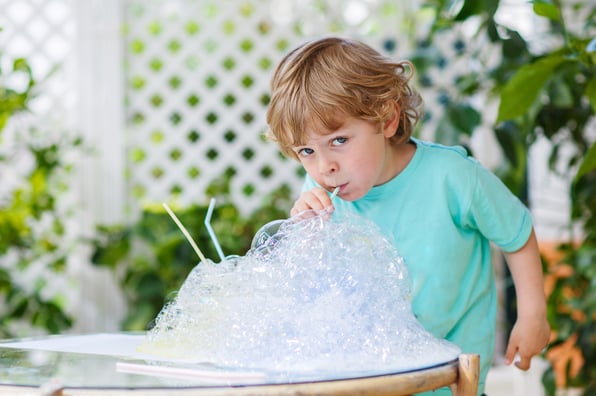 Parents.com talked to a panel of experts and concluded that the ages of 7 to 12 is the “ideal stage to learn to make resolutions.” They’re old enough to understand the concept and to create their own resolutions, yet their habits are not yet firm. The article then offers eight tips on the resolution-making process for your elementary school-age children. Here are three of them.
Parents.com talked to a panel of experts and concluded that the ages of 7 to 12 is the “ideal stage to learn to make resolutions.” They’re old enough to understand the concept and to create their own resolutions, yet their habits are not yet firm. The article then offers eight tips on the resolution-making process for your elementary school-age children. Here are three of them.
1. Be a Role Model
If you want your child to strive to develop good habits, you need to lead the charge. Consider sitting down with your family to discuss how to make and keep resolutions. Whether you want your child to have healthy eating habits or to get to school on time, you’ve got to model the behaviors by turning down that big piece of chocolate cake and arriving to work on time.
2. Be Upbeat
Demonstrate a positive, even celebratory, attitude toward setting New Year’s goals, sharing how each day is an opportunity to live well, to even “reinvent yourself.” Point out what everyone has done and encourage them to think of abilities they have now that they didn’t have a year ago. Then, what’s next for the upcoming year? Avoid a “punishing, preachy” manner, as that turns off children and adults alike.
3. Suggest Resolutions. Don’t Dictate Them!
Discover what goals your child has for himself or herself and let that drive the conversation. Provide guidance to help him or her clarify goals and to ensure that they are age-appropriate. Suggest categories—such as personal, friendship, helping and school—and then ask how your child would fill in the specifics.
We invite you to read the rest of the article, as it contains plenty more great information. Meanwhile, another Parents.com article shares resolutions that children have made that fit into these types of categories:
- Learning new things
- Improving education
- Healthy eating
- Exercising
- Helping parents with goals
- Being kinder to the environment
- Mastering milestones
- Helping others
- Continuing good behaviors
- Having fun
Read these real-life resolutions and consider using these categories to help guide your own family to age-appropriate New Year’s resolutions.
And here are sample resolutions from 5- to 12-year-old children that the American Society of Pediatrics considers appropriate:
- I will try to find a sport (like basketball or soccer) or an activity (like playing tag, jumping rope, dancing or riding my bike) that I like and do it at least three times a week!
- I will drink reduced-fat milk and water every day, and drink soda and fruit drinks only at special times.
- I'll never give out private information such as my name, home address, school name or telephone number on the Internet. Also, I'll never send a picture of myself to someone I chat with on the computer without asking my parent if it is OK.
Find more resolutions here.
What about Preschoolers?
An article from PBS suggests that there are age-appropriate resolutions for preschoolers, too, including these:
- Cleaning up toys
- Brushing teeth and washing hands
- Being kind to pets
- Listening well (I will listen better when Mommy/Daddy ask me to do something)
- Being helpful (I will help Mommy and Daddy out)
Is one of your 2016 resolutions to enrich your child’s learning and life? Horizon Education Center provides affordable quality care including educational and enrichment opportunities for children in the following Northeast Ohio locations.







